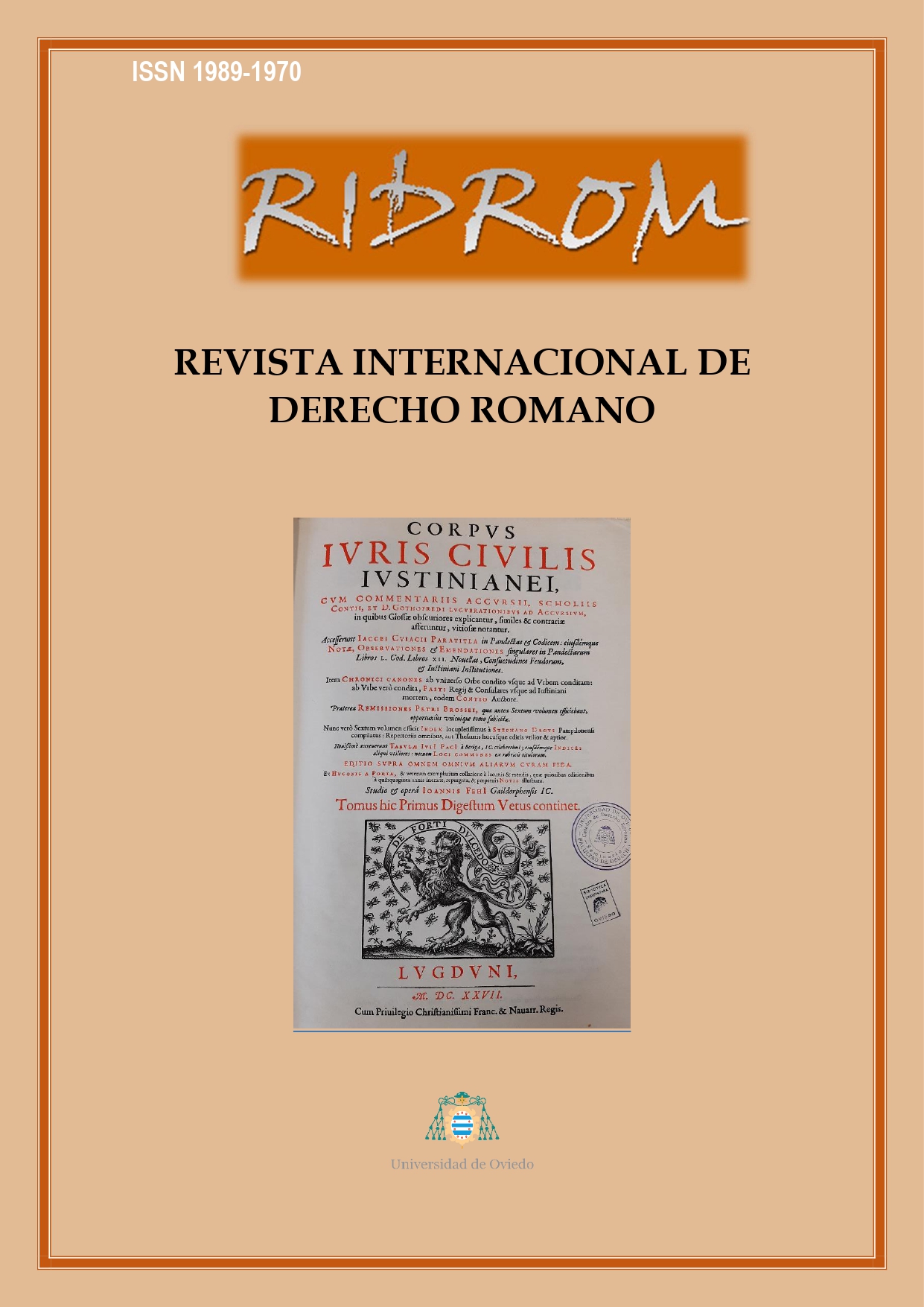Abstract
Based on the widespread distinction between open legal systems, as English and Anglo American law, which were linked in the past to Roman law, and other closed or coded systems [rights of the European continent], after pausing at the terminological origin of both systems, and their rigid contraposition, in this paper we seek to highlight that Rome, and its law neither embrace an open system in all its purity. For this purpose we follow three lines of reasoning: 1st) the structure and contents of the Bluhme’s theory, that provides useful information, 2nd) the digestorum libri [by Celsus, Iulianus, Marcelus and Quintus Cervidius Scaevola] through which their authors achieve the highest coordination of the ius civile and ius honorarium, 3rd) some of the fragmentos of those digestorum, formulated in general terms, and contained in D.50, 17 [de diversis regulis iuris antiqui]..Downloads
Download data is not yet available.

